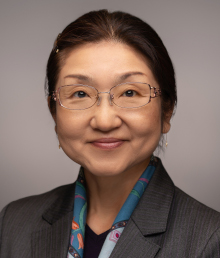GREETING
Dean
Tatsuro Ishida
Japan is the fastest aging society in the world, and the declining birthrate and quickly-aging society are pressing issues that need to be resolved not only in the fields of health and medical care but also in society. Other Asian countries are following Japan's footsteps, with rapidly aging populations and declining birthrates. Therefore, Asian countries are paying close attention to how Japan is coping with their declining birthrate and quickly-aging society as a leading model. In addition, Asian countries have inherent instabilities such as economic disparities and social issues caused by ethnic and religious diversity. In addition, those countries, and especially those in tropical regions, suffer from infectious diseases such as malaria and dengue fever. This has resulted, i.e. lifestyle-related diseases and aging, those countries facing a number of problems, and which vary from country to country and region to region, thus necessitating policies that take the situation in the individual country into account.
Kobe University has a number of overseas locations in Asia, and its Graduate School of Health Sciences has been promoting the education of highly professional human resources and researchers in the health and medical fields through cooperation and collaboration with ASEAN countries. The graduate School of Health Science established an “Frontier Center for Asian Health Sciences” in the Graduate School of Health Sciences in 2016 to addressing the diverse health and hygiene problems in Asian countries. With this Center at the core, we would like to advance the fusion of science and humanities with other research departments in Kobe University, as well as the co-creation of different fields in and outside the university. By doing so, we aim to conduct research that integrates science and humanities and co-create different fields of research in collaboration with researchers from Asian countries.
We hope that the activities of this Center will lead to social implementation through co-creation in different fields to contribute to the development of a healthy, safe, and secure society in Japan and abroad, especially in Asian countries.

Director of the center
Chieko Greiner
Health and hygiene issues in Asian countries include infectious disease control, maternal and child health care, lifestyle-related diseases, and measures for older people, and there is also a need to build health care systems that enable seamless support for individuals at every stage of their lives. The Graduate School of Health Sciences has been collaborating with ASEAN countries such as Vietnam, Indonesia, the Philippines, Thailand, and Taiwan through undergraduate and graduate education to promote the development of health and medical professionals and health science educators and researchers, and has performed collaborative research with those countries in the Asian region. The Center is working to further strengthen its efforts to solve health and hygiene issues in Asian countries by utilizing the network already established with universities, research institutes, and international organizations in ASEAN countries.
The Center has four divisions: 1) Growth and Development Division to address issues related to declining birthrates and maternal and child health care, 2) Successful Aging Division to address lifestyle-related diseases and aged society , 3) Infection Control Division to address infectious diseases, and 4) Health Literacy Division to address social implementation and social infrastructure of measures to solve public health issues. These four divisions work together to contribute to the establishment of a truly necessary healthcare system in the Asian region.
Frontier Center for Asian Health Sciences

